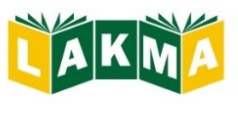
BIODATA
Marguerite Ann Snow, Ph.D. is a professor of Education at California State University, Los Angeles where she teaches in the TESOL M.A. program. She is co-author of Content-based Second Language Instruction (1989; 2003), and co-editor of The Multicultural Classroom: Readings for Content-Area Teachers (1992), and The Content-Based Classroom: Perspectives on Integrating Language and Content (1997). She is also editor of Implementing the ESL Standards for Pre-12-Students in Teacher Education (2000), and co-editor of Academic Success: Strategies for K-12 Mainstream Teachers (2005), Developing a New Course for Adult Learners (2006). Her most recent publication is Teaching English as Second or Foreign Language (4th ed.) (2014) which she co-edited with Marianne Celce-Murcia and Donna Brinton. She serves as a series consultant for Q: Skills for Success for Oxford University Press. She was a Fulbright scholar in Hong Kong (1985) and Cyprus (2009). In addition to working closely with public school teachers in the U.S., she has trained EFL teachers world-wide in such settings as Algeria, Argentina, Egypt, Japan, Kosovo, Kuwait, Latvia, Libya, Morocco, Pakistan, Peru, Qatar, Spain, and Turkey.
PLENARY The Evolving Architecture of Content-Based Instruction
This plenary session will provide an overview of content-based instruction in the North American context starting with the publication of Mohan’s seminal book in 1986. It will provide a definition and rationale for CBI and describe early prototype models (Brinton, Snow & Wesche, 1989, 2003). It will then present variations or “hybrids” of these models based on the need to customize the models for particular needs and settings, including international contexts where the integration of language and content is a desired goal. Looking back over nearly four decades of CBI, the talk will discuss issues that present current and future challenges.
WORKSHOP Integrating Skills in Content-Based Instruction / CLIL
This workshop has two main purposes: (1) to demonstrate how thematic teaching offers an excellent context for teaching the four language skills – reading, writing, listening, speaking; and (2) to give participants practice with hands-on activities such as writing language, content, and strategy objectives for a sample theme and for application to their own CLIL classrooms.
